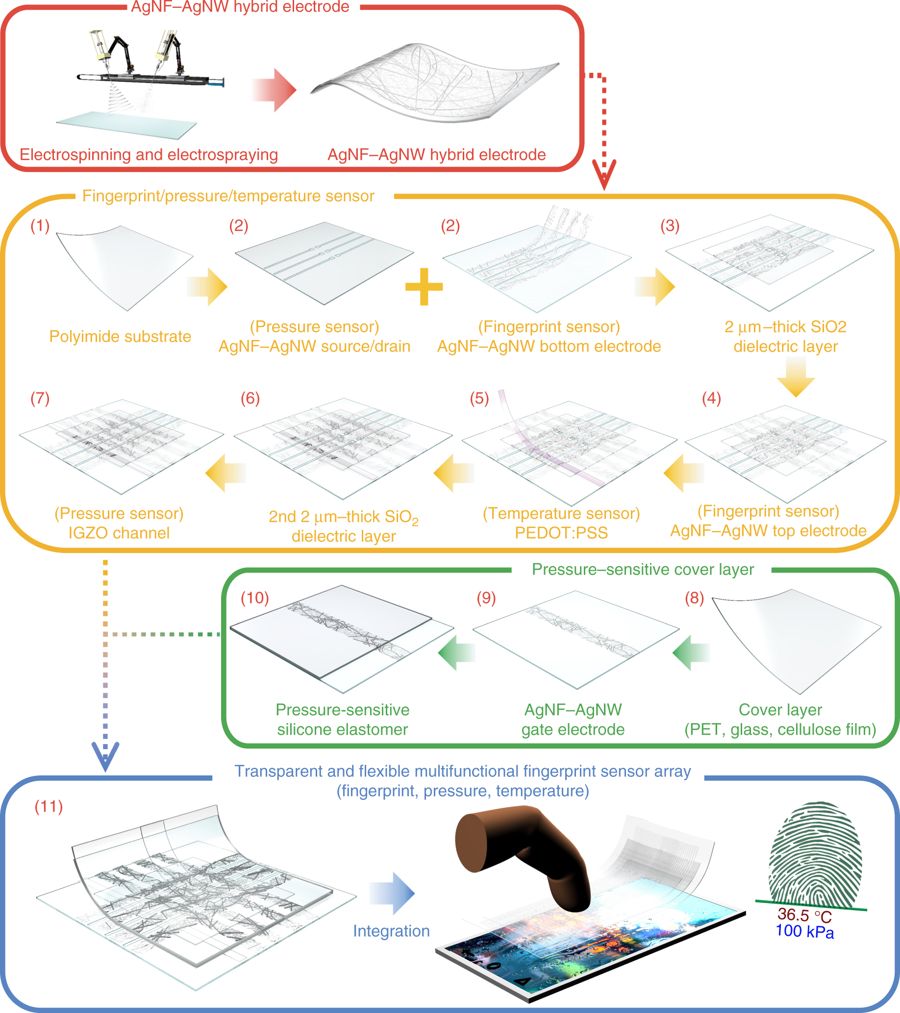The fingerprint scanner on your next phone might check you're a real person
And it'll also sense pressure

Scientists from the Samsung Display-UNIST Center at the Ulsan National Institute of Science and Technology in South Korea have developed a transparent, flexible fingerprint scanner that can be embedded in a smartphone's display and has the ability to not only read your print, but also take your temperature.
Details of the new technology were published on Nature Communications, outlining how the technology works and what it can offer.
The article explains how the new technology is more secure thanks to the inclusion of temperature sensing.
"In order to prevent the fingerprint forgery using artificial fingerprints, temperature of human finger skin can be detected using temperature sensors to distinguish real and counterfeit fingerprints...improving security levels further."
The sensor is "to monitor the temperature range of human finger skin, which enables the recognition of artificial fingerprints, thus improving security."

Good enough for the FBI
The researchers claim that "the high resolution of this fingerprint sensor array sufficiently satisfies the criteria set by the FBI for extracting fingerprint patterns, and its good transparency (89% in the visible light regime) enables its integration into a display."
The new sensor is also much better at actually reading your fingerprint, with up to a 17 times improvement over the current conventional scanning methods.
Get daily insight, inspiration and deals in your inbox
Sign up for breaking news, reviews, opinion, top tech deals, and more.
The ability for this tech to be embedded into displays could see even more manufacturers drop the physical scanners we see on the front and rear of today's smartphones - but don't expect this technology to hit phones in the next year or so.
While the technology may be working in the labs, it'll likely be several years before it could feasibly find its way into our smartphones. The report gives no indication of time frame for the launch of the tech, but it's an exciting development for the future of smartphones.
Via Cnet

TechRadar's former Global Managing Editor, John has been a technology journalist for more than a decade, and over the years has built up a vast knowledge of the tech industry. He’s interviewed CEOs from some of the world’s biggest tech firms, visited their HQs, and appeared on live TV and radio, including Sky News, BBC News, BBC World News, Al Jazeera, LBC, and BBC Radio 4.